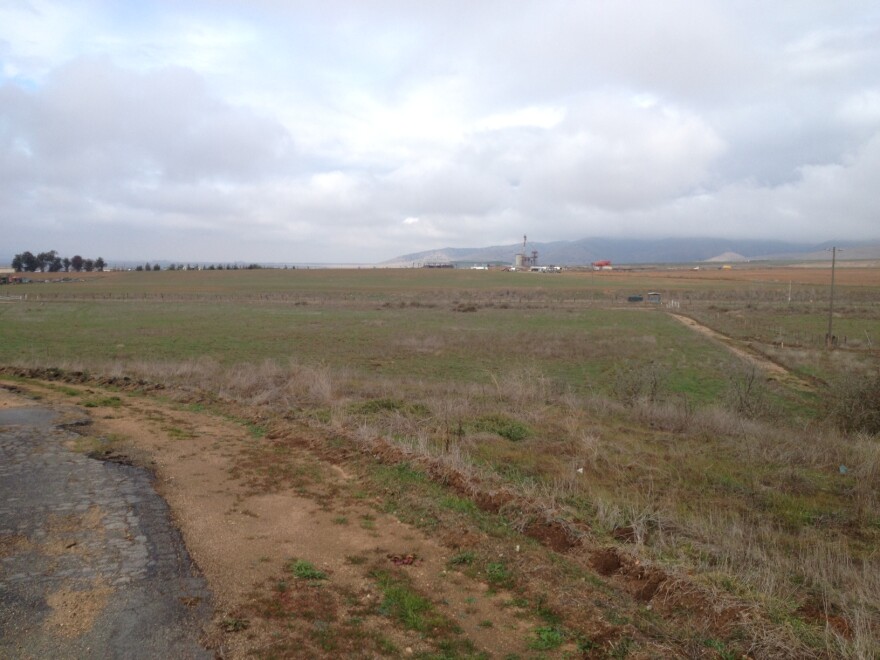With dwindling landfill space in the Salinas Valley, a plan to build a plant that turns trash into energy is under environmental review.
At the Johnson Canyon Landfill just east of Gonzales, Susan Warner watches as a tractor drives back and forth to compact trash into the ground. “A landfill really the only asset is air space. It’s unfilled space,” said Warner, Diversion Manager for the Salinas Valley Solid Waste Authority. Limited space is the constant challenge for landfills. Warner says the SVSWA is looking toward a future without landfills. In fact Johnson Canyon is the authority’s last open landfill, and there’s a plan to replace it with a facility that converts trash into energy. “So this low area right here is where the facility is proposed. So that fence line is Johnson Canyon Road,” said Warner as she pointed to a flat piece of land near the landfill entrance.
That’s where Plasco Energy hopes to build a plasma arc gasification facility. After recycling, the plant would take the leftover trash and heat it until it’s converted into a gas. That gas is cleaned and then sent to engines that make electricity. The electricity goes to the grid. “It’s not an incineration process. This is a process which converts the waste into a fuel,” said Steve Simmons , Plasco’s Vice President of Project Development. He says the process does have some emissions including trace amounts of sulfur and chlorine. “Well it’s greatly reduced from what normal landfill emissions are per ton of waste. It’s actually very comparable to the emissions that would come from an engine fired with natural gas,” said Simmons. Plasco just sealed the deal to build a similar facility in its hometown of Ottawa, Canada. Other than its demonstration facility also in Ottawa, it has no operating plants. “It is a new technology. There’s not a lot of demonstration of its long term operation. I think our company, Plasco Energy, is at the forefront in demonstrating how it works,” said Simmons. Through the Environmental Review process, he says, they’ll prove the technology is safe.
That’s not enough for Gonzales resident and mother of two, Bronwyn Moreno. “We don’t want our community to be first. We don’t want to find out, you know 10, 20, 30 years from now, oops, the emissions we were producing caused you guys all to get cancer. Sorry we made a mistake. It’s just not a risk that I’m willing to take for my children,” said Moreno. Gonzales business owner Julia Rocha also opposes the facility. She questions why other cities, most recently Santa Barbara, have rejected plasma arc gasification plants. “The fact that those bigger cities turned it down and now and they try to bring it to our little town of Gonzales. It really makes me uncomfortable,” said Rocha. She’s a member of the group Asamblea Poder Popular de Gonzales, which opposes the plant. The group believes the facility is nothing more than a garbage incinerator in disguise. Rocha says she has no faith in the Environmental Review process. “Because typically, you know as you might know, the environmental reviews are always positive for the agency who is requesting it or paying for it. In this case, Plasco,” said Rocha.
Susan Warner says the Salinas Valley Solid Waste Authority will pay for the environmental view, and Plasco will reimburse it for the cost. “I live in Gonzales. I have as much concern as every other resident and business owner there. It’s very, very simple. If the environmental impact report determines that the project has impacts that are harmful to the air or the earth or the water, we won’t go forward with the project,” said Warner. The environmental review process will take about a year. The first public scoping meetings are February7th and 15th at 6:30p.m. in the Gonzales High School Gym.


